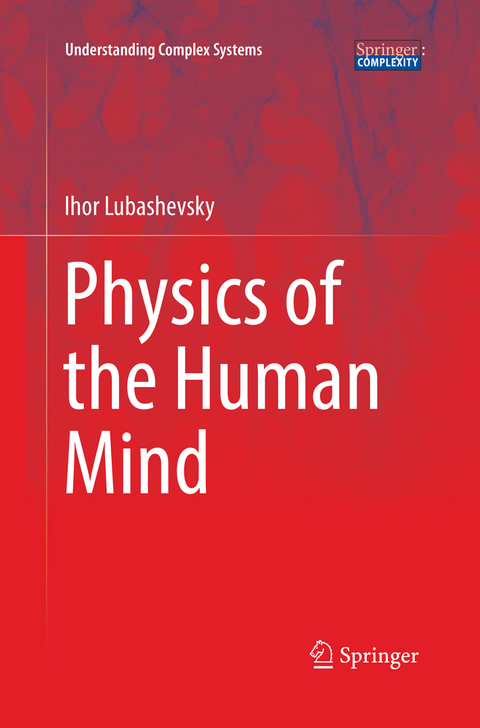
Physics of the Human Mind
Springer International Publishing (Verlag)
978-3-319-84721-4 (ISBN)
This book tackles the challenging question which mathematical formalisms and possibly new physical notions should be developed for quantitatively describing human cognition and behavior, in addition to the ones already developed in the physical and cognitive sciences.
Indeed, physics is widely used in modeling social systems, where, in particular, new branches of science such as sociophysics and econophysics have arisen. However, many if not most characteristic features of humans like willingness, emotions, memory, future prediction, and moral norms, to name but a few, are not yet properly reflected in the paradigms of physical thought and theory.
The choice of a relevant formalism for modeling mental phenomena requires the comprehension of the general philosophical questions related to the mind-body problem. Plausible answers to these questions are investigated and reviewed, notions and concepts to be used or to be taken into account are developed and some challenging questions are posed as open problems.
This text addresses theoretical physicists and neuroscientists modeling any systems and processes where human factors play a crucial role, philosophers interested in applying philosophical concepts to the construction of mathematical models, and the mathematically oriented psychologists and sociologists, whose research is fundamentally related to modeling mental processes.
Ihor Lubashevsky received his Ph.D. from the Moscow Institute for Physics and Technology in 1980. He went on to become an assistant professor at Moscow State University, followed by a post as leading staff scientist at the theory department of the A. M. Prokhorov General Physics Institute, Russian Academy of Sciences. Present he is a professor at the Complex Systems Modeling Lab, The University of Aizu, Japan. Professor Lubashevsky's research experience and interests include statistical physics, non-equilibrium many-particle systems, synergetics, sociophysics, medical physics and related philosophical issues. He has published a textbook with R Mahnke and J Kaupuzs, Physics of Stochastic Processes - How Randomness Acts in Time, with Wiley in 2008.
Modeling of Human Behavior as Individual Branch of Physics and Mathematics.- Why Laws of Classical Physics Have Their Form.- Fodor-Kim Dilemma.- Strong Emergence via Constitutive Fields.- Non-Cartesian Dualism and Meso-Relational Media.- Modeling of Human Behavior Within the Paradigm of Modern Physics.- Emergent Phenomena Caused by Bounded Capacity of Human Cognition.- Epilog: Physics and Human Mind.- References.- Index.
| Erscheinungsdatum | 05.03.2022 |
|---|---|
| Reihe/Serie | Understanding Complex Systems |
| Zusatzinfo | XIV, 380 p. 83 illus., 41 illus. in color. |
| Verlagsort | Cham |
| Sprache | englisch |
| Maße | 155 x 235 mm |
| Gewicht | 605 g |
| Themenwelt | Mathematik / Informatik ► Informatik ► Theorie / Studium |
| Naturwissenschaften ► Physik / Astronomie ► Theoretische Physik | |
| Sozialwissenschaften ► Soziologie ► Empirische Sozialforschung | |
| Schlagworte | Cognitive architectures • Data-driven Science, Modeling and Theory Building • Mind-body interface • Modeing human behaviour • Modeling mental processes • Philosophy of human interactions • Social neurosciences |
| ISBN-10 | 3-319-84721-X / 331984721X |
| ISBN-13 | 978-3-319-84721-4 / 9783319847214 |
| Zustand | Neuware |
| Haben Sie eine Frage zum Produkt? |
aus dem Bereich


